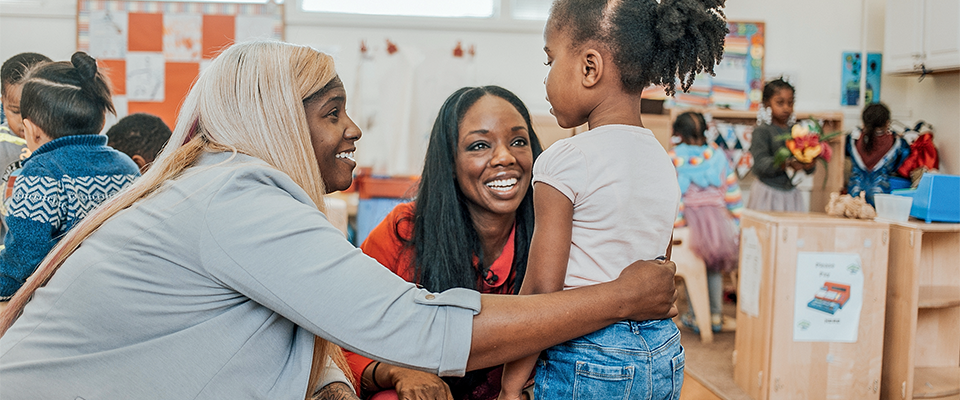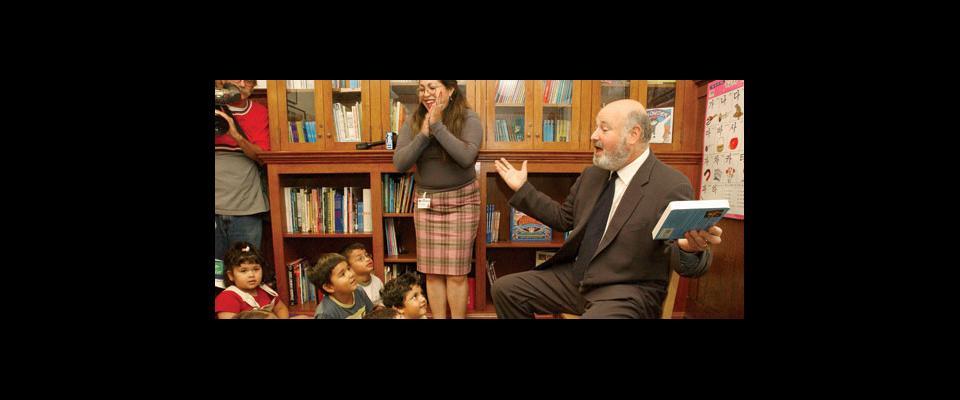California Surgeon General and Berkeley alumna, Dr. Nadine Burke Harris, talks long-term health impacts of the pandemic.
As California’s first-ever surgeon general, how do you hope to shape the position?
Dr. Nadine Burke Harris: Governor Newsom established the position of California Surgeon General with the understanding that some of the most pernicious, but least-addressed health challenges are the upstream factors that eventually become chronic and acute conditions that are far more difficult and expensive to treat. As the first California Surgeon General, I have prioritized early childhood development, health equity, adverse childhood experiences (ACEs), and toxic stress.
The COVID-19 pandemic has brought about many new challenges, but the work around health equity and ACEs and toxic stress is more important now than ever.
What is toxic stress, and what led you to concentrate on it?
NBH: Exposure to repeated, severe, or chronic stressors, without the buffering protections of trusted, nurturing caregivers and safe, stable environments, can lead to prolonged activation of the biological stress response, which can alter the structure and functioning of children’s developing brains, metabolic, immune, and neuroendocrine systems, and even the way our DNA is read and transcribed.
Stress is a normal, and even essential, part of human development. However, several decades of scientific research have identified toxic stress as a key mechanism by which adverse childhood experiences lead to increased risk of serious acute and chronic health conditions, such as asthma, diabetes, heart disease, and Alzheimer’s.

Do you expect COVID-19 to have a long-lasting impact on the health of today’s youth and public health in general?
NBH: Research from other natural disasters, such as Hurricane Katrina, earthquakes, and even the 1918 flu pandemic, shows that large-scale public health emergencies have had significant and lasting effects on health and development. We believe that the pandemic is proving to be a significant risk factor for toxic stress, both by increasing ACEs, such as intimate partner violence and substance dependence, and also by limiting access to the buffering relationships that we know are healing. Add to that the economic hardship so many are experiencing, plus the vicarious trauma of witnessing racial injustice, and we recognize that there is a dramatically increased risk of toxic stress for this generation.
Studies have shown that the coronavirus pandemic is having a disproportionate effect on Black and brown people. How does the state plan to address racial health disparities?
NBH: We know that Black and brown people are falling sick and dying from COVID-19 at disproportionate rates. These disparities didn’t just come out of nowhere. They are the result of generations of policies and decisions communicating what and whom we value. If we don’t act intentionally and inclusively, COVID-19’s disproportionate impact on vulnerable communities will worsen those existing disparities.
California is the first state in the nation to create and implement an equity metric tied to the state’s reopening, which ensures that counties are approaching reopening with an equity lens. This metric aims to provide greater equity in access to COVID-19 testing, education, and supports to reduce transmission of the virus among all communities in California. The state will be working closely with counties to reach those equity goals.
California also launched the ACEs Aware initiative in January, a first-in-the-nation effort to train physicians and health care providers on how to recognize and respond to the toxic stress response. As part of this training, we have included the science that recognizes exposure to racism and discrimination as a risk factor for toxic stress.
It’s unclear how long the pandemic will persist. What’s your advice for coping with that uncertainty?
NBH: I just want to say that if it feels hard, that’s because it is hard. This is a once-in-a-hundred-year pandemic, and it has changed our daily lives. One approach that’s helpful is focusing on the things we can still control. We can control how much we exercise, how we nourish our bodies, how much media we expose ourselves to, and whether we take a few moments out of the day for some mindfulness. All of these simple actions can help us cope with the stress and uncertainty of COVID-19. Remember, self-care is not selfish.





















